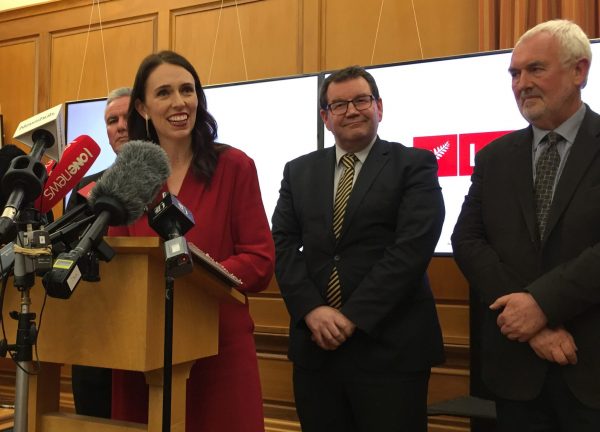Although winning more votes and more parliamentary seats than any other party, National was defeated in its quest for a fourth successive term when the second, third and fourth place finishers — the Labour Party, New Zealand First and the Green Party (the Greens) respectively — agreed on a coalition after several weeks of discussions.
The result sees New Zealand’s parties and parliamentarians facing a number of challenges.
The first has to do with the unprecedented character of the coalition. The populist New Zealand First party and the Greens have relatively little in common, represent significantly different constituencies and have little history of parliamentary cooperation between them. The coalition arrangements reflect this legacy, with New Zealand First gaining the more prestigious appointments: its leader Winston Peters is Deputy Prime Minister and Minister of Foreign Affairs, and four of its ministers are part of the Cabinet.
By contrast, the Greens’ ministers were kept at some distance: the party’s three ministers serve outside the Cabinet, which continues an arrangement introduced in 2005 in acknowledgement of coalition partners’ incompatibilities and conflicting policy preferences.
The second challenge to stable and effective governance has to do with inexperience, which takes several forms.
The New Zealand public, for its part, lacks experience with a coalition of this type. It is not used to seeing the most successful party at a general election fail to win office. On election night, National’s Bill English (the then prime minister) reflected this viewpoint and suggested that given the level of support for his party, it had the ‘moral authority’ to form and lead the next government — a claim that subsequently became less emphatic. But renewed questions will be asked about the legitimacy of the new government if its policies prove unpalatable, its coherence proves unsustainable or its overall performance proves unacceptable.
Within Parliament, inexperience crosses party lines. On the one hand, many of National’s members of parliament (MPs) — particularly its most senior members — have little if any experience with being in opposition. Adapting to the role (with its frustrations) will be a challenge and some of the party’s leading figures are expected to retire as parliamentarians rather than make the effort to do so.
A lack of experience is also a challenge on the government’s side. Only three of the Labour Party’s ministers have served in Cabinet before. Only two New Zealand First MPs have previously held ministerial office — most notably its leader, having previously served both as deputy prime minister and as minister of foreign affairs.
For the Greens, the learning curve is even greater — 2017 is the first time that any of its MPs have been given a position within the executive. Serving in government with the norms and discipline required will be a challenge to the Greens’ own modus operandi, as its traditions of intraparty democracy, transparency and grassroots consultation come up against the realities of coalition government policy execution.
A broader lack of experience is to be found in the coalition’s parliamentary team. While National’s 56 MPs include 46 returning members, the government side is less well acquainted with executive and legislative practices and procedures. Labour’s 46-member caucus includes 17 new MPs, New Zealand First’s group of nine includes two new MPs and the Greens’ eight MPs also include two newcomers.
With New Zealand’s new government defining itself as a ‘government of change’, high expectations surround a team which came to power following a campaign founded on optimism, energy and a spirit of ‘relentless positivity’ exemplified by new Prime Minister Jacinda Ardern. The new government, seeking to make a break from the past, will be striving to make rapid progress with policies offering immediate and highly visible positive outcomes for New Zealand.
A resolve to move quickly and with determination, articulated in the Governor-General’s 8 November ‘speech from the throne’ setting forth the government’s program, is evident in the decision to keep Parliament sitting later in December and to return earlier in January than usual. While introducing new measures to help various constituencies — the young, the elderly and the homeless — the government will be seeking in 2018 to show competence as well as commitment by maintaining New Zealand’s economic growth and low unemployment as well as preserving positive and productive international relationships with traditional friends and partners.
Overall, the new government’s principal challenge for 2018 will be to demonstrate that it is able to work towards some of its more ambitious goals, such as ending child poverty, reducing inequality and acting on climate change, while protecting what New Zealanders also value — a strong and competitive economy.
Stephen Levine is Professor at the School of History, Philosophy, Political Science & International Relations, Victoria University of Wellington.
This article is part of an EAF special feature series on 2017 in review and the year ahead.

